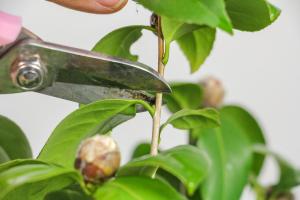How Does Water Pollution Affect Humans, Animals, and Plants?
Water is one of the most precious resources on earth. However, with increasing industrialization and urbanization, water pollution has become a significant issue. Water pollution occurs when harmful substances, such as chemicals and waste products, are introduced into bodies of water. These pollutants can have severe effects on the environment, as well as humans, animals, and plants.
Impact on Humans
Water pollution can have several adverse effects on humans. Drinking polluted water can lead to various health problems such as gastrointestinal disorders, dizziness, nausea, and skin diseases. The presence of heavy metals such as lead and mercury in the water can lead to severe health issues such as neurological disorders and organ damage. Furthermore, contaminated water can lead to the spread of water-borne diseases such as cholera, typhoid, and dysentery.
Water pollution can also impact human economic activities such as agriculture and fishing. Contamination of irrigation water can lead to reduced crop yields or even the death of crops. Similarly, the pollution of the seas and oceans can lead to the destruction of commercial fish stocks, leading to significant economic losses for fishermen and their families.
Impact on Animals
Water pollution can have devastating effects on animals that live in or near water bodies such as rivers, lakes, and oceans. The presence of chemicals, heavy metals, and other harmful substances in the water can lead to severe health problems such as cancers, nerve damage, and reproductive disorders. Furthermore, water pollution can harm aquatic ecosystems by destroying habitats, reducing prey populations, and harming other marine life.
The effects of water pollution on animals can be felt regarding industrial or agricultural practices. Pesticides, herbicides, and other chemicals used on crops can eventually find their way into water bodies, causing severe harm to aquatic animals. Similarly, the discharge of industrial waste into water bodies can lead to a range of harmful effects from physical deformities to death.
Impact on Plants
Water pollution can have harmful effects on plants as they obtain nutrients from it. The herbicides and pesticides used on crops can contaminate water bodies and harm the plants growing in it. High levels of pollutants in the water can also lead to soil erosion, which can destroy plant habitats and damage crops.
Furthermore, water pollution can also harm plants by changing the physical and chemical characteristics of the water they grow in. Algae blooms, caused by the accumulation of excess nutrients in the water, can lead to the suffocation and death of aquatic plants, which can, in turn, reduce the quality of water for fish and other animals.
Conclusion
In conclusion, water pollution is a severe environmental issue that affects not only humans but also animals and plants. The discharge of harmful substances into water bodies can lead to the loss of life and habitat for a broad range of species. It can affect human health and economic activities, such as agriculture and fishing. Therefore, it is essential to take up measures to prevent water pollution and ensure that our water resources remain safe and healthy for future generations.

 how many times do yo...
how many times do yo... how many planted tre...
how many planted tre... how many pine trees ...
how many pine trees ... how many pecan trees...
how many pecan trees... how many plants comp...
how many plants comp... how many plants can ...
how many plants can ... how many plants and ...
how many plants and ... how many pepper plan...
how many pepper plan...






























